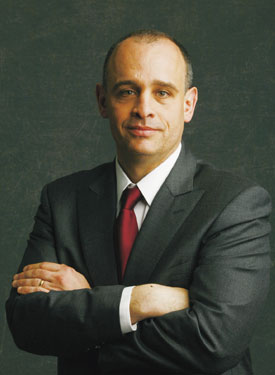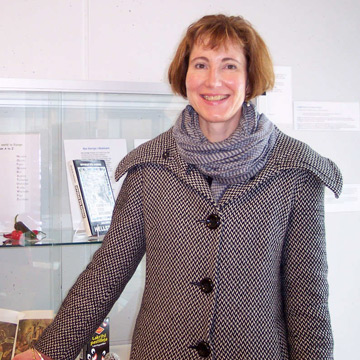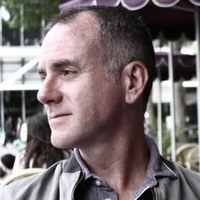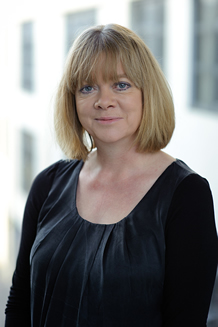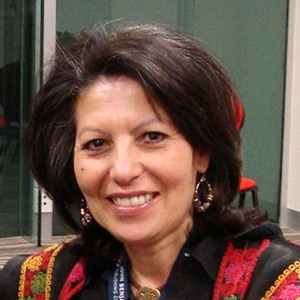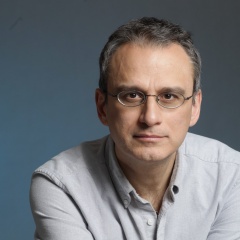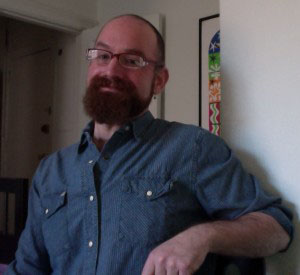
Brian Teare:
Outside the Window Poetry Reading Series
September 12
7 pm
The Bridge PAI
A former Stegner Fellow at Stanford University, Brian Teare is the recipient of poetry fellowships from the National Endowment for the Arts, the MacDowell Colony, the Marin Headlands Center for the Arts and the American Antiquarian Society. He’s the author of four full-length books, The Room Where I Was Born, Sight Map, the Lambda-Award-winning Pleasure, and Companion Grasses, one of Slate’s best poetry books of 2013 and a finalist for the Kingsley Tufts Poetry Award. He’s also published seven chapbooks: Pilgrim, Transcendental Grammar Crown, ↑, Paradise Was Typeset, Helplessness, [ black sun crown ], and SORE EROS. After over a decade of teaching and writing in the San Francisco Bay Area, he’s now an Assistant Professor at Temple University in Philadelphia, where he makes books by hand for his micropress, Albion Books.
This event is co-sponsored by the UVa Contemporary Poetry and Poetics Group and The Virginia Quarterly Review.
Christopher Celenza:
Machiavelli Today: Why He Matters Now
September 24
6 pm
Minor Hall Auditorium
In this talk, drawing on his new book, Machiavelli: A Portrait (forthcoming spring 2015 with Harvard University Press), Christopher S. Celenza presents a reading of Machiavelli that intersects with contemporary concerns. The Machiavelli we think we know turns out to be incomplete. Alongside the hard-nosed political thinker, there was also an idealist whose personal commitment to the political life serves as a lesson for today’s disillusioned, cynical culture. Touching on Machiavelli’s biography, his predilection for interpreting the past, and even today’s media culture, Celenza presents a Machiavelli unfamiliar to modern readers.
Elleke Boehmer:
Madiba Magic: Charisma, Rhetoric, Authority, Love
October 1
1 pm
Auditorium of the Albert and Shirley Small Special Collections Library
This talk will offer an account of the ways in which Nelson Mandela’s charisma as a nationalist leader and first democratic President of South Africa was a self-conscious production, and of the ways in which the myth of Madiba was also a construction of others, including of the international anti-apartheid movement. Drawing from new research, as well as a reading of his prison correspondence and speeches, Boehmer will go on to explore other of the curious contradictions that distinguish Mandela’s life and legacy. Mandela was a self-styled Edwardian gentleman and an Anglophile, yet also an African nationalist; he was a democrat, yet he liked ‘to lead from the front’. Finally, the lecture will ask whether it is possible to speak of a Mandela-esque approach or philosophy; a thinking based, arguably, on the recognition of the other through friendship and love.
Robert McRuer:
Cripping Austerity: Disability, Globalization, and Culture
October 24
2 pm
Minor Hall Auditorium
Theorists of neoliberalism, from David Harvey to Judith Butler and Athena Athanasiou, have placed dispossession at the center of their analyses of the workings of contemporary global capitalism and of a global austerity politics. Disability, however, has not figured centrally into these analyses. Even as Kevin Floyd gives David Wojnarowicz (a frequently-homeless artist and writer who died from complications due to HIV/AIDS in 1992) pride-of-place in his theorization of “the violence of neoliberalism” in The Reification of Desire: Toward a Queer Marxism, disability is displaced from consideration—displaced, arguably, by queerness, as Floyd provides a textured argument about the ways in which queerness both fuels and impedes neoliberalism. Attending in his own presentation to what he will term “crip displacements,” McRuer examines Livia Radwanski’s photos of the redevelopment of a Mexico City neighborhood (and the displacement of poor people living in the neighborhood) to trace how disability haunts theories of neoliberal dispossession and is central to a global austerity politics.
Global Disability:
A Panel by UVA Faculty and Staff
October 24
3 pm
Minor Hall Auditorium
Following the keynote by Robert McRuer, Professor of English at GWU, UVA faculty and students present on wide-ranging topics related to Global Disability. Reception to follow. See full schedule of events, including panelists and talk titles, here.
Kate Pickett:
The Human Costs of Inequality
November 3
1 pm
Clark 107
Inequality has always been regarded as divisive and socially corrosive. The data show that even small differences in the amount of inequality matter. Material inequality serves as a determinant of the scale and importance of social stratification. It increases status insecurity and competition and the prevalence of all the problems associated with relative deprivation. Particularly important are effects mediated by social status, friendship and early childhood experience. However, although the amount of inequality has its greatest effect on rates of problems among the poor, its influence extends to almost all income groups: too much inequality reduces levels of well-being among the vast majority of the population.
Steve Cushman and Lisa Russ Spaar:
Poetry Reading
November 6
5:30 pm
UVA Bookstore
Ian Baucom, Dean of Arts and Sciences:
History 4˚C: Climate Change, Critical Method, and the Historical Novel
November 10
4 pm
Auditorium of the Albert and Shirley Small Special Collections Library
Co-sponsored by the Departments of Anthropology, English, Environmental Sciences, History, and Religious Studies and by Environmental Humanities.
Wang Juntao:
Development and Conflicts: China Since the Tienanmen Massacre
November 12
1 pm
Clark 107
When the Tienanmen Massacre happened in 1989, few Western observers thought that the Chinese Communist Party could rule China with a non-democratic regime in the long run. Experts suggested many scenarios of the collapse of China. However, up till now, China has maintained the world’s fastest development for over 25 years. The Chinese Communist Party appears firmly in control of Chinese globalization. Has the liberal democratic model failed in China? In answering this question, Wang will survey the political dynamics in China in past decades, analyze the factors maintaining and changing the political regime in China, and propose a road-map of coming democratization in China.
Mona Baker:
The Prefigurative Politics of Volunteer Subtitling in the Egyptian Revolution
November 19
1 pm
Auditorium of the Albert and Shirley Small Special Collections Library
The idea of prefiguration originally derived from anarchist discourse; it involves experimenting with currently available means in such a way that they come to mirror or actualize the political ideals that inform a movement, thus collapsing the traditional distinction between means and ends. Practically all the literature on prefiguration has so far focused on structural, organizational and interactional issues. Specifically, existing literature has examined how activist communities attempt to create in their own interactions and in the way they organize their work the kind of society they envision: non-hierarchical, non-representational, respectful of diversity, etc. This presentation will explore the extent to which volunteer subtitling undertaken by disparate individuals for collectives connected with the Egyptian Revolution supports or undermines the prefigurative agendas of these collectives. In doing so, it will attempt to extend the current definition of prefiguration to encompass textual, visual and aesthetic practices that prefigure activist principles and actualize them in the present, focusing on the level of experimentation involved in subtitling video clips produced by two Egyptian collectives: Mosireen and Words of Women from the Egyptian Revolution.
Mike Hulme:
(Still)Disagreeing About Global Warming: What Way Forward?
November 19
4:30 pm
Clark 107
Climate change is an environmental, cultural and political phenomenon which is reshaping the way humans think about themselves, their societies and their earthly future. It is a powerful example of how scientific knowledge and symbolic imagination – fact and meaning – interact in multiple and complex social contexts. In Hulme’s previous work Why We Disagree About Climate Change, he considered the different ways people argue about climate change in the contexts of science, economics, religion, the psychology of fear, risk communication, development sociology, and politics. In the five years since that book was published, new developments have occurred in nature, science, politics and culture. Yet climate change continues to be an idea which both unites and divides. In this talk Hulme will consider why this is and what it tells us about science, about faith and about the stories we tell about the future.
William Deresiewicz:
Excellent Sheep: The Miseducation of the American Elite and the Way to a Meaningful Life
November 20
6 pm
Auditorium of the Albert and Shirley Small Special Collections Library
Drawing from his book, Deresiewicz argues in this talk that as schools shift focus from the humanities to ‘practical’ subjects like economics and computer science, students are losing the ability to think in innovative ways. Deresiewicz explains how college should be a time for self-discovery, when students can establish their own values and measures of success, so they can forge their own path. He addresses parents, students, educators, and anyone who’s interested in the direction of American society, featuring quotes from real students and graduates he has corresponded with over the years, candidly exposing where the system is broken and clearly presenting solutions.

